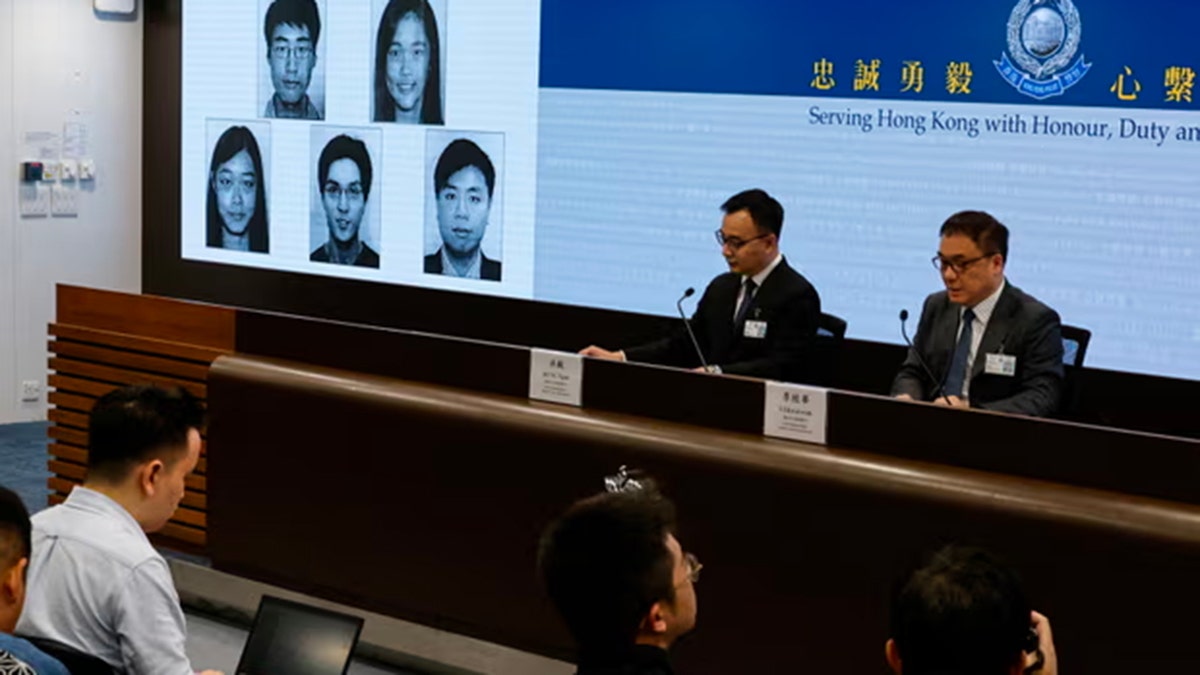
As part of a crackdown under a China-imposed national security law, Hong Kong police have offered million-dollar bounties for information leading to the arrest of five overseas-based activists, including one American citizen.
Back in July, Hong Kong’s chief executive, John Lee, announced that eight pro-democracy activists living in the United States, Britain, Canada, and Australia would be pursued for life for alleged national security offenses.
Those arrests included former pro-democracy lawmakers Nathan Law, Ted Hui and Dennis Kwok, lawyer Kevin Yam, unionist Mung Siu-tat and activists Finn Lau, Anna Kwok and Elmer Yuen.
The most recent arrest warrants were issued for Johnny Fok and Tony Choi, who host a YouTube channel focusing on current affairs, and pro-democracy activists Simon Cheng, Hui Wing-ting and Joey Siu.
The latest arrest warrants further intensified the Hong Kong government’s crackdown on dissidents after anti-government protests in 2019.
According to authorities, all were accused of breaching the Beijing-imposed national security law by committing offenses such as collusion with foreign powers and inciting secession.
Since 2020, when the law was validated, more than 260 people have been arrested.
Hong Kong’s Secretary for Security Chris Tang doubled down on the crackdown against the eight activists, saying authorities were seeking to cut access to their finances, including freezing and confiscating their assets.
Cheng wrote on X, formerly known as Twitter, that he embraced the charges. ‘Being hunted by China (Hong Kong)’s secret police, under a one-million-dollar bounty, is a lifelong honor,’ he wrote.
The U.S. State Department said it strongly condemned the Hong Kong authorities’ actions and its ‘bounty list’ targeting democracy activists overseas, according to the Guardian.
‘That shows blatant disregard for international norms, for democracy and human rights,’ State Department spokesperson Matthew Miller said at a regular news briefing on Thursday. ‘We deplore any attempt to apply the Beijing-imposed national security law extraterritorially and reiterate that Hong Kong authorities have no jurisdiction within United States borders, where the advocates for democracy and freedom will continue to enjoy their constitutionally guaranteed freedoms and rights.’
The U.K. foreign secretary, David Cameron, added that he had instructed officials in Hong Kong, Beijing and London to raise the issue as a matter of urgency with the Hong Kong and Chinese authorities.
In a statement released from his office, Cameron said, ‘We will not tolerate any attempt by any foreign power to intimidate, harass or harm individuals or communities in the UK. This is a threat to our democracy and fundamental human rights.’
The State Department was not immediately available for comment.
Reuters contributed to this report.

As part of a crackdown under a China-imposed national security law, Hong Kong police have offered million-dollar bounties for information leading to the arrest of five overseas-based activists, including one American citizen.
Back in July, Hong Kong’s chief executive, John Lee, announced that eight pro-democracy activists living in the United States, Britain, Canada, and Australia would be pursued for life for alleged national security offenses.
Those arrests included former pro-democracy lawmakers Nathan Law, Ted Hui and Dennis Kwok, lawyer Kevin Yam, unionist Mung Siu-tat and activists Finn Lau, Anna Kwok and Elmer Yuen.
The most recent arrest warrants were issued for Johnny Fok and Tony Choi, who host a YouTube channel focusing on current affairs, and pro-democracy activists Simon Cheng, Hui Wing-ting and Joey Siu.
The latest arrest warrants further intensified the Hong Kong government’s crackdown on dissidents after anti-government protests in 2019.
According to authorities, all were accused of breaching the Beijing-imposed national security law by committing offenses such as collusion with foreign powers and inciting secession.
Since 2020, when the law was validated, more than 260 people have been arrested.
Hong Kong’s Secretary for Security Chris Tang doubled down on the crackdown against the eight activists, saying authorities were seeking to cut access to their finances, including freezing and confiscating their assets.
Cheng wrote on X, formerly known as Twitter, that he embraced the charges. ‘Being hunted by China (Hong Kong)’s secret police, under a one-million-dollar bounty, is a lifelong honor,’ he wrote.
The U.S. State Department said it strongly condemned the Hong Kong authorities’ actions and its ‘bounty list’ targeting democracy activists overseas, according to the Guardian.
‘That shows blatant disregard for international norms, for democracy and human rights,’ State Department spokesperson Matthew Miller said at a regular news briefing on Thursday. ‘We deplore any attempt to apply the Beijing-imposed national security law extraterritorially and reiterate that Hong Kong authorities have no jurisdiction within United States borders, where the advocates for democracy and freedom will continue to enjoy their constitutionally guaranteed freedoms and rights.’
The U.K. foreign secretary, David Cameron, added that he had instructed officials in Hong Kong, Beijing and London to raise the issue as a matter of urgency with the Hong Kong and Chinese authorities.
In a statement released from his office, Cameron said, ‘We will not tolerate any attempt by any foreign power to intimidate, harass or harm individuals or communities in the UK. This is a threat to our democracy and fundamental human rights.’
The State Department was not immediately available for comment.
Reuters contributed to this report.









